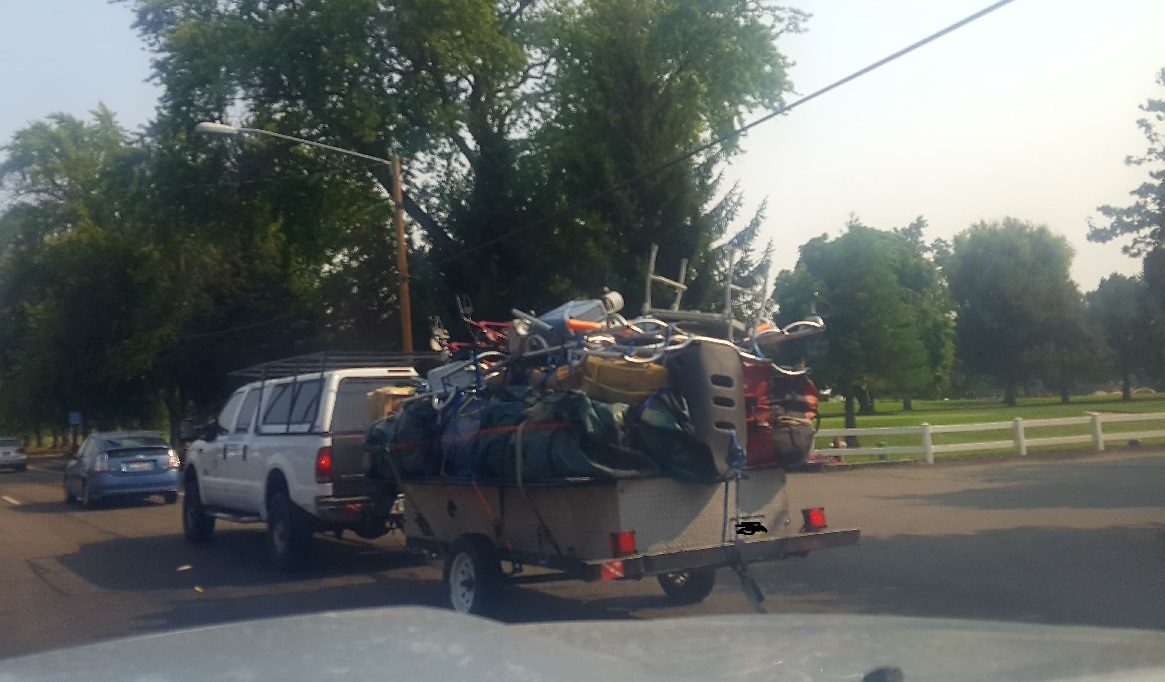
Auto Insurance – Towing Safety

It amazes me sometimes how much stuff someone will load onto their vehicle without thinking about the safety of overloading or not property securing trailer loads (see photo).
There are certain times when you have a need to extend what you usually transport with your car, pickup, SUV or van. It could be that you’re moving furniture or belongings; you need to transport a camper, boat, snowmobiles, recreational gear or even animals. In such cases you are likely to use a trailer.
Towing a trailer adds to a driver’s responsibility. A number of critical, extra steps must be taken in order to make sure that no accidents occur which could cause injuries and damage to property.
If you are new to towing, it’s important that you take the time to learn how to drive properly while towing. It is particularly important to know what precautions must be taken. Nearly every aspect of driving can be affected by what is being towed. Additional care is necessary when changing lanes, passing, merging with traffic, braking, and accelerating.
The following are important considerations
• Does the towing vehicle have enough power to safely tow the applicable trailer?
• Does the towing vehicle have the correct towing package such as mount, socket, hinges, safety chains, electrical plugs and, if needed, separate trailer brake system?
• Are all hookups for any necessary lights and brakes properly connected?
• If necessary, have you properly installed and adjusted extension mirrors?
• Is the trailer properly loaded to properly distribute weight?
• Are the towing vehicle’s brakes in good condition?
• Is the trailer equipped with sway controls that minimize lateral motion?
There are other considerations once you begin travel such as watching your speed, steering and turning. You must also account for the additional time it takes to safely brake the towing vehicle/trailer combo.
When traveling longer distances, the trailer should be monitored to make sure that all connections remain secure and that the load remains balanced. When parking, you must make sure that you have proper clearance from other vehicles and that you use the correct method for safely backing the trailer. Improper turning, steering or backing can result in jackknifing.
Another critical issue is to check with your insurance professional so that your insurance coverage adequately handles the additional coverage needs.
Source – ©The Rough Notes Company, Inc.
Categories: Blog
